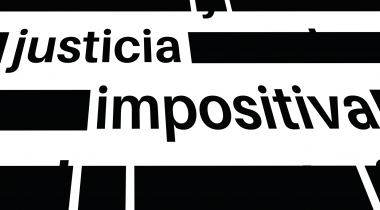
Naomi Fowler ■ A great day for tax justice: coming closer to ending anonymous ownership

Today will be remembered as a milestone for progress on tax justice. We’d like to think of it as the first steps into a true post-#PanamaPapers era when real, concrete action was taken by Members of the European Parliament towards achieving financial transparency in the public interest. Today we’re suddenly much closer to ending anonymous ownership of companies and trusts that operate in the European Union.
Markus Meinzer of the Tax Justice Network says:
“This is a great moment for tax justice and for the European Union, set to lead again on financial transparency which counters corruption and helps restore fair market competition. The most important measure was the inclusion of public registries that cover all companies and trusts. But the EU Parliament went further and successfully pushed back on a fatal loophole that would have allowed senior managers of companies to be registered as beneficial owners. The icing on the cake is the broadening of the definition of a beneficial owner to a threshold of 10% of ownership/control in an entity (instead of 25% and above previously), and that a business relationship has to be terminated if no beneficial owner can be identified.”
So, what now? As transparency campaigner Richard Murphy says here,
“The coming months will be crucial to ensuring Member States do not backtrack on this step towards full company and trust ownership disclosure. The European Parliament, the Commission and the Members States will discuss the changes to the Directive in trialogue negotiations and a final decision is expected before the summer.”
Here’s a statement from our partners at the Financial Transparency Coalition:
Members of the European Parliament agreed today to strengthen the Anti-Money Laundering Directive, a crucial tool for both the EU and third countries in the fight against corruption and tax abuse.
The European Parliament has agreed with the European Commission’s proposal calling for public disclosure of information about who really owns and controls EU companies. MEPs also went beyond the European Commission’s proposal and are calling for the public disclosure of information on all types of trusts with ties to the European Union.
This decision, fuelled by the public backlash against recent scandals such as the Panama Papers, as well as the urgency to stop terrorist financing, is a great opportunity to demonstrate that the EU is committed to taking concrete action on transparency. The coming weeks will be crucial to ensuring Member States do not backtrack on this step towards full company and trust ownership disclosure.
The European Parliament, the Commission and the Members States will discuss the changes to the Directive in trialogue meetings and a final decision is expected before the summer.
Emily Wigens, Director of ONE Brussels, said:
“Today’s vote is a welcome step towards greater transparency which is a critical element of the fight against extreme poverty. Illicit financial flows worth billions of dollars are siphoned out of developing countries through anonymous companies and trusts. If just a portion of these stolen and hidden funds was properly taxed, this could help developing countries finance their fight against extreme poverty, providing vital government revenues for education, healthcare and infrastructure in the poorest countries.
We now call on Member States to ensure that the strong position adopted today is carried during negotiations and demonstrate the EU’s continued leadership in tackling corruption.”
Tove Maria Ryding, Tax Justice Coordinator at the European Network on Debt and Development (Eurodad) said:
“By voting for public registers that cover both companies and trusts, European parliamentarians are showing that they are serious about bringing an end to the kind of scandals that were exposed in the Panama Papers.
“Now it is up to European governments to follow the Parliament’s example and introduce this vital tool that will help tackle tax dodging and money laundering.”
Porter McConnell, Director of the Financial Transparency Coalition (FTC), added:
“By deciding to support public registers for all companies and trusts, the Parliament has shown that it truly wants to tackle illicit flows like tax evasion and money laundering, and wants to make sure others outside Europe? can utilise the information, too. By making this data public, government authorities, journalists and citizens in the global south would be more resourced to track down tax abuse in their home countries, as EU legal entities are a favourite choice for moving dirty money.”
Related articles

The secrecy enablers strike back: weaponising privacy against transparency
Privacy-Washing & Beneficial Ownership Transparency
26 March 2024

New Tax Justice Network podcast website launched!

El secreto fiscal…tiene cara de mujer: January 2024 Spanish language tax justice podcast, Justicia ImPositiva

Get rich cheating in our (educational) tax dodgers version of monopoly
Why beneficial ownership frameworks aren’t working – and what to do about it
20 December 2023

New report on how to fix beneficial ownership frameworks, so they actually work

The Tax Justice Network’s most read pieces in 2023

Overturning a 100 year legacy: the UN tax vote on the Tax Justice Network podcast, the Taxcast


